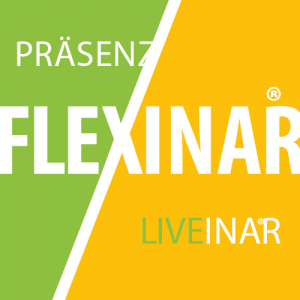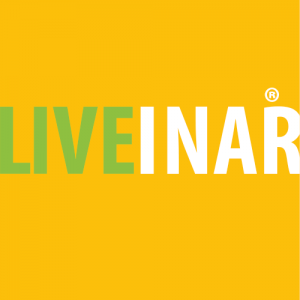- Home
- /
- Datenbanken
- /
- Oracle
- /
- Oracle Database 12c: New...
Oracle Database 12c: New Features for Administrators Seminar
Schulungsinhalt
Die Trainings-Schwerpunkte werden nach Ihrem persönlichen Beratungsgespräch festgelegt. In diesem Oracle Training sind folgende Themen vorgesehen:
Enterprise Manager and Other Tools
– Enterprise Manager (EM) Cloud Control home page
– Enterprise Manager Express home page versus Enterprise Manager Database Control
– SQL Developer with new functionalities
– OUI, DBCA Basics of Multitenant Container Database (CDB)
– Benefits of the multitenant architecture
– Differences between the root container and pluggable database containers
– Structure of the root
– Structure of Pluggable Database (PDB)
– CDB_xxx and DBA_xxx views
– Impacts in Security, Data Guard, Oracle GoldenGate, Oracle Streams, XStream, and Scheduler Configuring and Creating CDB and PDBs
– Tools: DBCA and SQL*Plus
– Configuration and creation of CDB
– Exploring the Structure (CDB_xxx views and EM)
– Tools used: SQL Developer, DBCA and SQL*Plus
– Create a new PDB from PDB$SEED
– Create a PDB from a non-CDB
– Clone a PDB into the same CDB or into another CDB using DB links
– Plug in an unplugged PDB Managing CDB and PDBs
– Connect to CDB as administrator
– Connect to a PDB using a service name
– Start up a CDB
– Open / Close a PDB (SQL*Plus, srvctl, EM)
– Open / Close all PDBs
– Shut down a CDB
– Triggers ON PLUGGABLE DATABASE
– Change PDB state Managing Tablespaces, Common and Local Users, Privileges and Roles
– Create permanent tablespaces in the root and PDBs
– Manage common and local schemas and users in the root and PDBs
– Manage system and object privileges to common and local grantees granted "commonly" or "locally"
– Manage common and local roles granted "commonly" or "locally" Managing Backup / Recovery / Flashback and Migration
– Backup a whole CDB
– Backup a PDB
– Recover CDB from redo log files, control files, undo datafiles loss
– Recover PDB from PDB datafiles loss
– Flashback at CDB level Online Datafile Move and Automatic Data Optimization
– Data classification in 12c : tablespace, group, object, row levels
– Configure heat map
– Automatic movement and compression
– Compression levels and types
– Policy declaration: simple declarative SQL extension
– Customized automated action execution with user-defined function
– Execution in scheduled maintenance windows and by MMON
– Customized schedule with DBMS_ILM package In-Database Archiving
– Challenges of old data in tables and 11g solutions
– In-database archiving new solutions
– Use ROW ARCHIVAL clause to enable row lifecycle state for applications
– Set ROW ARCHIVAL VISIBILITY for session level visibility control
– Use predicate on ORA_ARCHIVE_STATE column
– Temporal Validity versus Temporal History (Transaction Time of FDA)
– New clause of CREATE / ALTER TABLE to set a Temporal Validity: PERIOD FOR
– New SQL temporal data type Auditing Enhancements
– Review of 11g R2 audit trail implementation
– Overview of the Unified Audit Trail
– Enabling the Unified Audit Trail
– Creating a separate tablespace for the unified audit trail
– Granting the AUDIT_ADMIN role to a user for audit trail configuration and management
– Configuring the Unified Audit Trail to set a tolerance level for loss of audit records
– Creating audit policies Privileges Enhancements
– Implementing Separation of Duty for Database Administration Tasks
– Using Database Privilege Analysis
– Overview of Database Privilege Analysis
– Granting the CAPTURE_ADMIN role to enable management of privilege captures
– Creating and starting/stopping privilege captures
– Viewing privilege profile data
– Querying DBA_PRIV_CAPTURES
– Using mandatory INHERIT PRIVILEGES privilege to execute invoker’s rights procedure Oracle Data Redaction
– Overview of Oracle Data Redaction
– Types of Masking Policies
– Administering the EXEMPT REDACTION POLICY system privilege to enable a user to view unmasked values
– Managing Masking Policies
– Best practices for defining policy expressions
– Understanding Masking of Statements Containing Subqueries
– Viewing Information About Masking Policies by Querying REDACTION_POLICIES and REDACTION_COLUMNS General RMAN New Features and FDA Enhancements
– Making Database Connections With RMAN
– Using the SYSBACKUP Privilege
– Using SQL, DESCRIBE Command, Duplication Operation with the NOOPEN option
– Backing up and Restoring Very Large Files
– Creating Multisection Backups
– Transporting Data Across Platforms
– Prerequisites and Limitations
– Transporting Data: Processing steps Monitoring DB Operations
– Overview
– Use cases
– Current Tools
– Define a DB operation
– Monitoring: Bracketing an Operation
– Monitoring the Progress of Operations
– DB Operation Tuning
– DB Operation Active Report Schema and Data Changes
– Change requests
– Schema synchronization
– Explain the Data Comparison flow
– DBMS_COMPARISON package
– Guidelines and steps
– Comparison job and results SQL Tuning
– Adaptive Execution Plans
– SQL Plan Directives
– Statistics Gathering Performance Improvements
– Histogram Enhancements
– Enhancements to Extended Statistics
– Adaptive SQL Plan Management Real-Time ADDM and Compare Period Advisor
– Emergency Monitoring
– Real time ADDM
– Use cases
– Goals
– Define Workload dimensions
– Reported items
– Root Causes
– Requirements for a report Resource Manager and Other Performance Enhancements
– Manage resources between PDBs
– Manage resources within a PDB
– Manage resources with CDB and PDBs plans
– Manage runaway queries
– Automated maintenance tasks
– Describe the Multi-process Multi-threaded Oracle architecture
– Learn how to use this architecture in Oracle 12c Database
– Demonstrate the changes to shutdown procedures Index and Table Enhancements
– Multiple indexes on the same set of columns as long as some characteristic is different
– Create table with INVISIBLE columns
– Support for invisible columns
– Advanced Row Compression
– Describe online redefinition supports
– Explain LOCK timeout during FINISH_REDEF_TABLE
– Using DDL statements in an online manner ADR and Network Enhancements
– ADR file types
– New File types
– New File locations
– New commands for ADRCI
– Improve performance by Compression
– Setup Compression Oracle Data Pump, SQL*Loader, External Tables and Online Operations Enhancements
– Use FULL Transportable export and import
– Oracle Data Pump enhancements
– SQL*Loader enhancements
– SQL*Loader and External table common enhancements
– SQL*Loader Express Mode usage Partitioning Enhancements
– Move a partition online
– ALTER TABLE … SPLIT PARTITION, ALTER TABLE … MERGE PARTITION , ALTER TABLE…ADD PARTITION Clauses: Overview
– Split Partition Operation Enhancement
– ALTER TABLE SPLIT SUBPARTITION
– Merge Partition Operation
– Add Partition Operation
– Drop Partition Operation
– ALTER TABLE DROP SUBPARTITION SQL Enhancements
– Enumerate Increase in the length limits for VARCHAR2, NVARCHAR2, and RAW data types in Oracle SQL to 32767 (32k) byte
– Enumerate miscellaneous enhancements
– Using SQL Row limiting clause in a query
Zielgruppe
Für diesen Oracle Database 12c: New Features for Administrators Kurs sind Sie Datenbankadministrator oder Systemadministrator.
Seminarziele
Dieses Oracle Database 12c: New Features for Administrators Training vermittelt Ihnen folgende Kenntnisse:
– Create, manage and monitor multitenant container database and pluggable databases
– Manage datafile online operations, data lifecycle management with heat map and automatic data optimization, archive data using Row-archival or Temporal Validity and Temporal Histor
– Set up the unified audit trail
– Understand and use the new privileges, such as SYSBACKUP, SYSDG, SYSKM and manage privilege analysis
– Create and manage Data Redaction masking policies
– Use the Recovery Manager enhancements
– Manage the database performance with monitoring DB operations, Real-Time ADDM and Compare Period ADDM
– Compare two databases using Schema Change Plans to propagate changes from one environment to another
– Use Data Comparisons to compare data across environments
– Tune the SQL performance using Adaptive Execution Plans, SQL Plan Directives and statistics enhancements
– Manage resources in a multitenant container database and pluggable databases with enhanced Resource Manager
– Explore new Oracle Data Pump features and SQL*Loader Express Mode
– Use online operations during partition movement and compression, and other DDL operations
– Use partial global partitioned indexes
– Explain new SQL enhancements such as extended data type column and SQL row limiting clause
Vorkenntnisse
Vorausgesetzt werden Erfahrungen mit Oracle Database 11g.
Seminardauer
Preis
Präsenzseminar/FLEXINAR®:
LIVEINAR®:
Individual Training: Preis auf Anfrage
Inhouse Training: Preis auf Anfrage
Seminarnummer

Martin Heubeck
Group Leader Sales
- martin.heubeck@protranet.de
Beratungszentrale und Buchungshotline:
- 0800 3400311
- beratung@protranet.de
Kataloge
Formate






